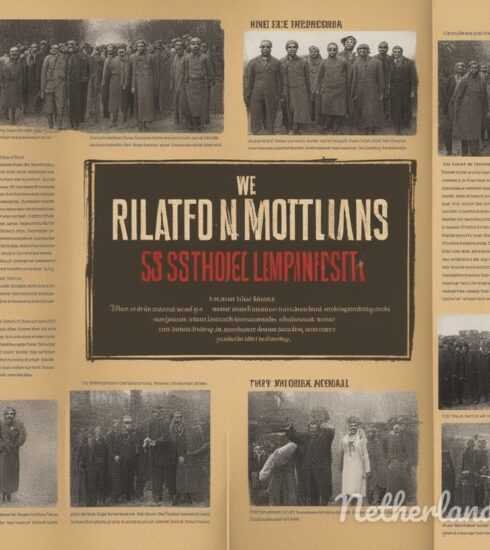Unraveling the Secrets of Dutch Resistance Landmarks: Whispers of Valor in the Netherlands Iconic Landscapes
Introduction
The Netherlands is a canvas painted with tales of resistance, valor, and centuries-old resilience, etched into the timeless landscapes and revered historical landmarks. This narrative of strength is epitomized in the whispers of valor, which echo from the times of World War II. This was the era when the Dutch resistance, a collective force of ordinary Dutch citizens, took a stand against the oppressive German occupation. Many of these reminders of bravery are subtly embedded in the extraordinary landscapes and iconic sites of the Netherlands, telling stories of courage and a nation’s will to survive.
These Whispers of Valor: Subtle Traces of Dutch Resistance in Iconic Landscapes of the Netherlands serves as a potent reminder of this period in history, driving thousands of locals and tourists alike to these meaningful landmarks each year. In this comprehensive guide, we delve into the intriguing tales of resistance, tracing their barely noticeable imprints on the Dutch land.
From the hidden rooms in the Anne Frank House, the sprawling terrain of the National Monument Camp Westerbork, to the quiet corners of Oranjehotel, each corner of this beautiful country whispers tales of ordinary heroes who, when faced with the unthinkable, resisted with unyielding spirit. These stories serve as the nation’s enduring legacy, their lessons of courage and resilience resonating with each generation.

The Whispers of Valor
The indomitable spirit of the Dutch resistance is palpable in these iconic landscapes:
Anne Frank House
Nestled in the heart of Amsterdam, the Anne Frank House serves as a poignant symbol of the Dutch resistance. The iconic attic and secret annex, where Anne Frank and her family hid from the Nazis from 1942-1944, bear silent testimony to the quiet strength of a young girl and the desperate struggles of a nation under seize.

National Monument Camp Westerbork
The National Monument Camp Westerbork, once a transit camp from where over 100,000 Dutch Jews were deported, stands today as a reminder of the agonies and atrocities of war. It’s a whisper of honor and respect for the prisoners who withheld their human spirit amidst profound suffering.
The Oranjehotel
The Oranjehotel, actually Scheveningen Prison, was the primary prison for members of the Dutch Resistance arrested by the Nazi occupation authorities during World War II. Despite its grim past, it radiates tales of extraordinary resilience and defiance, making it an essential landmark resonating with tales of valor.

Subtlety in Plain Sight
The subtlety of these traces of resistance can easily go unnoticed. They are not marked by grandiose monuments or flamboyant declarations but remain hidden in plain sight, largely preserved in their original form. Their true value lies not in their physical presence but in the historical significance and the emotional depth they represent.
Every crooked bookcase in Anne Frank House, every rusted barbed wire in Camp Westerbork, and every solitary cell in Oranjehotel reverberate with a narrative of hardship and heroism. Symbols of resistance, they chart the course of the Dutch people’s persistent fight against tyranny.
Unveiling the Narratives

As compelling as these tales of resistance are, their subtlety makes them easy to miss. Yet, it’s in their whispers that the true essence of Dutch courage emerges.
Imagine standing within the hollowed walls of an ancient Dutch castle, reliving the tales of the brave resisters or wandering through the empty corridors of Oranjehotel, sensing the spirits of the imprisoned champions. These are the experiences that unlock the narratives behind these historically significant sites, the true whispers of valor.
Conclusion
Touring these historical landmarks is much more than a sightseeing experience. It’s a journey enriched with vivid historical narratives, cultural insights, and a unique exploration into the pages of Dutch history. As you trace the subtle reminders of the resistance within these iconic landscapes, the essence of the Dutch spirit of strength and resilience becomes apparent.
These Whispers of Valor: Subtle Traces of Dutch Resistance in Iconic Landscapes of the Netherlands serve as silent guardians of the nation’s history, eternally echoing the valor of the ordinary Dutch citizens during the trying times of the Second World War. So, the next time you journey through these beaten paths, take a moment to listen closely to the whispers. Because the very ethos of the Dutch spirit echoes in these subtle traces of resistance wrapped into the iconic landscapes.






